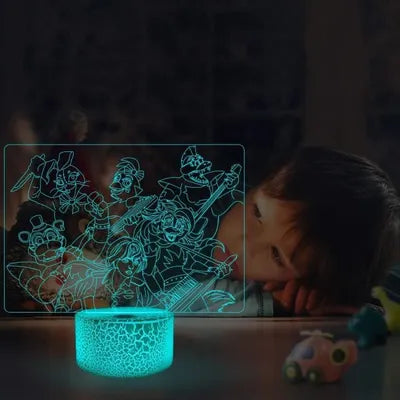Play-based learning is a type of education that allows children to learn through exploration and play.
It has proven to be more effective than traditional teaching methods and allowed children to develop important life skills, retain and understand the different concepts around them.
Play-based learning is a flexible approach that can be adapted in many ways and is often seen as more enjoyable and effective than other more traditional types of learning.
In this article, we are going to discover six benefits of learning through play for children.
1. Learning through fun is more effective for children than traditional methods
Learning through play is more effective for children. Play allows them to be creative and use their imaginations .
Indeed, the game offers them an enjoyable way to explore new concepts and practice what they have learned.
When children participate in an activity they enjoy, they are more likely to pay attention and retain information.
Also, play can help promote creativity and critical thinking .
Therefore, parents and educators should look for opportunities to incorporate play into the learning process.
For example, children can participate in role-playing games , play in teams , or create games when they are in class. This keeps them active throughout the day.
Teachers can also use digital tools such as fun apps and websites to help students learn.
By making learning fun, they can help children more effectively develop the skills and knowledge they need to succeed.
If you want your child to learn effectively, encourage them to play. Give her lots of opportunities to explore, experiment and have fun.
2. Children learn to solve problems and make decisions
When children play, they are constantly making decisions and solving problems.
For example, they can decide which toys to play with, which rules to follow or how to resolve a conflict with other children.
Through play, children learn to think creatively, solve problems logically and make decisions with confidence.
By becoming more adept at making decisions and solving problems, puzzles, charades, they are better able to deal with the challenges of everyday life.
Additionally, play can also help children develop other important skills such as creativity , communication , and collaboration .
Therefore, learning through play is not only enjoyable for children, but it also helps them develop essential skills that will serve them throughout their lives.
3. Children learn to communicate with others
When children play, they develop their social and emotional skills .
They learn to communicate with others , to cooperate and to make decisions. These skills will help them develop their independence later in life.
Children also learn to control themselves and manage their emotions when playing. They develop a better understanding of themselves and how they interact with others.
Finally, children who play regularly are generally more creative and have better imaginations .
So learning through play is an essential way for children to develop many important skills.
4. Learning through play helps children focus
A recent study showed that children who learn through play have a higher level of concentration than those who learn formally.
The study found that children who participated in free play had better attention and observation skills and were able to concentrate for longer periods of time than those who participated in more structured activities.
This is because play allows children to explore and experiment at their own pace. They can move, make noise and use their imaginations without fear of making mistakes.
Conversely, formal learning environments can be restrictive and children can feel pressured to perform. They can then feel anxious and stressed, which can have an impact on their level of concentration.
Additionally, learning through play allows children to use their intuition and life experience to develop new ideas and concepts.
Indeed, children are often exposed to situations and problems that cannot be addressed formally.
Learning through play therefore offers children a unique way of exploring the world around them.
5. Learning through play encourages children's imaginations
Play is an important activity for children because it encourages the development of imagination and creativity .
Children who play frequently develop a greater ability to imagine different worlds and create stories. These stories can be developed through toys or board games that help them discover new things.
Play is also a way for children to learn to cooperate and communicate with others .
Indeed, they must learn to listen and respect the rules of the game so that everyone can take part. This allows them to socialize and develop their own interpersonal skills.
Thus, learning through play is essential for the development of children's social and emotional skills .
6. Play can help children develop physically
Learning through play isn't just a way to have fun — it can also help children develop physically .
Play helps children use their large muscles, improving their strength, coordination and balance.
It can also encourage them to explore their surroundings and develop their gross motor skills .
Additionally, play can help improve hand-eye coordination and fine motor skills .
For example, activities such as drawing , cutting and beading or manipulative play, such as block building and puzzles can all help children develop dexterity.
Discover our collection of educational games and our collection of coloring books available on Amazon.
Outdoor play can also lead to increased levels of vitamin D, which is essential for bone health.
Research has shown that active play may also help reduce the risk of obesity later in life.
Therefore, it is clear that play can have a positive impact on physical development.
However, it is important to note that all types of play are beneficial and children should be encouraged to engage in a variety of activities.
By providing opportunities for different types of play, adults can help children get the most out of their playtime .
The game is therefore not to be neglected for the learning and development of the child
It is obvious that learning children through play has many advantages. The six advantages we have listed are just a few examples of the advantages of the game.
When it comes to making decisions about what is best for their children, parents should consider allowing their children to learn through play.
This not only helps them in school, but also teaches them important things for life .
Coloring book to cut and paste: 25 drawings to learn how to color and cut out simple and fun pictures for children aged 3 and over










